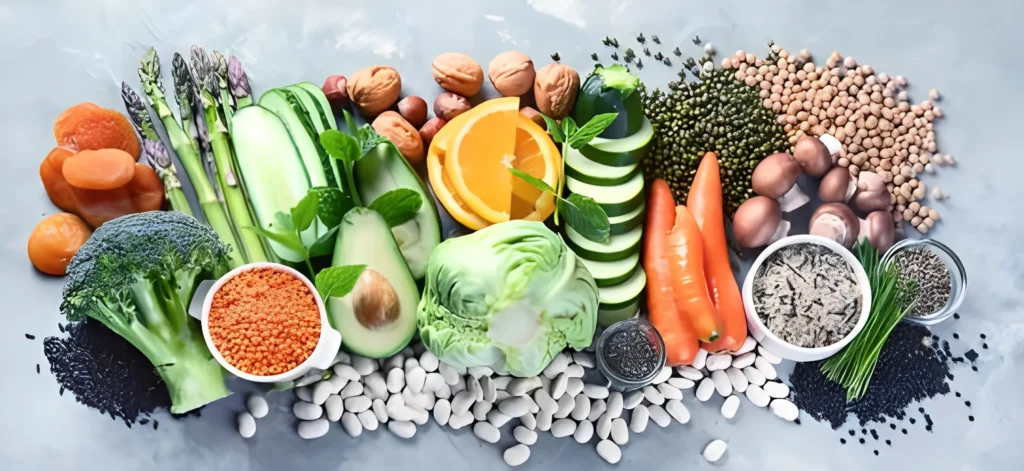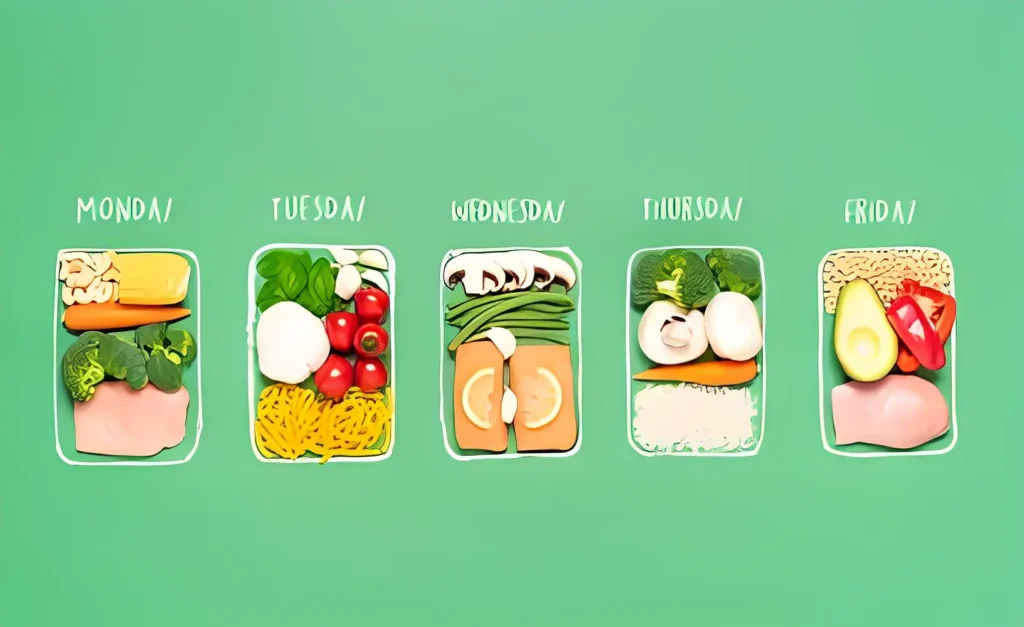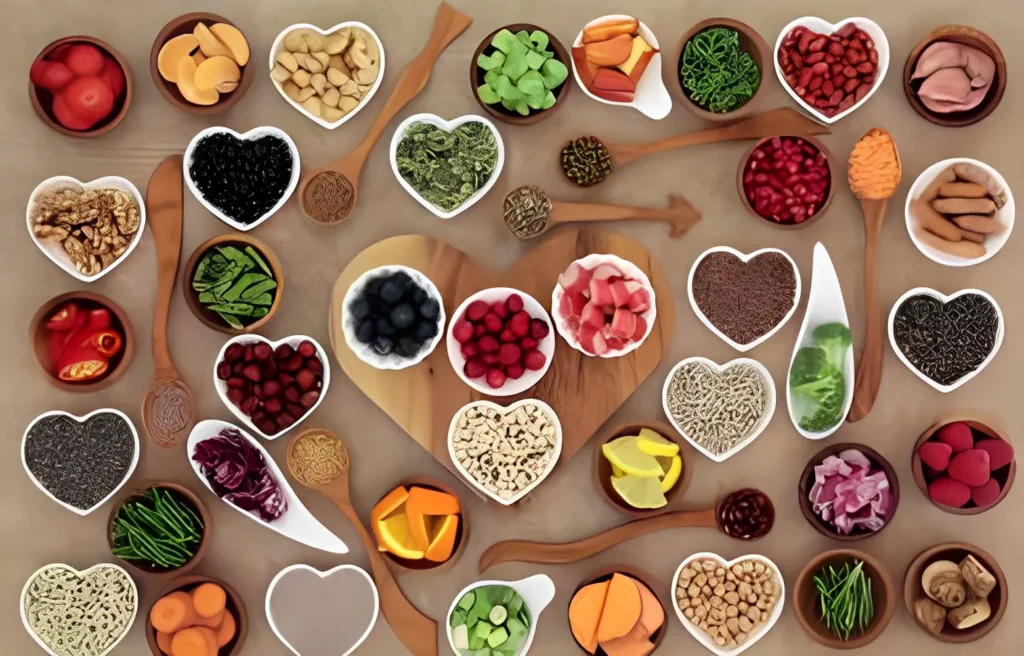Cardio concerns got you down? A plant-based diet for heart health might be your answer! Studies show plant-powered eating can strengthen your heart, leaving you feeling vibrant and alive. Get ready to explore a delicious world of veggies, fruits, and whole grains – your heart will thank you!
Curious but unsure where to start? You’re not alone! We’ve all heard whispers about the benefits, but is a plant-based diet for heart health really all it’s cracked up to be? The answer, backed by mountains of research from reputable organizations like the American Heart Association, is a resounding YES!
So, dive in with us today! Let’s explore the science-backed magic of plant-powered plates, unlock delicious recipe secrets, and discover how simple swaps can transform your health, one bite at a time. Are you ready to empower your heart and embrace a vibrant future? Let’s go!
P.S. This journey isn’t about rigid restrictions, it’s about celebrating the abundance of the plant kingdom and discovering how good healthy can taste! Stay tuned for practical tips, inspiring stories, and mouthwatering recipes that will make your taste buds sing (and your heart happy!).
1. Understanding the Power of Plants:

Thinking about dipping your toes (or maybe the whole foot!) into a plant-based diet for your heart health? But hold on, before you go full-on kale chip mode, let’s unpack the “why” behind this powerful dietary shift.
Have you ever wondered how a plate bursting with colorful plants can actually benefit your ticker? It’s not just about ditching meat; it’s about embracing a treasure trove of nutrients that work wonders for your cardiovascular system.
Here’s the nitty-gritty:
- Plant-based diets are naturally lower in saturated fat and cholesterol, two notorious villains linked to heart disease. Think: swapping that juicy steak for a hearty lentil stew packed with fiber and healthy fats.
- But wait, there’s more! These plant powerhouses are brimming with antioxidants and phytochemicals, nature’s own defense squad against cell damage and inflammation, both risk factors for heart woes. Imagine: berries bursting with anthocyanins and leafy greens loaded with carotenoids working overtime to protect your heart.
- And guess what? Studies show that plant-based diets can positively impact blood pressure, a crucial factor in maintaining a healthy heart. Research suggests: a diet rich in fruits, vegetables, and whole grains might be just as effective as some blood pressure medications in certain cases.
Sounds promising, right? But before you start picturing yourself living on lettuce alone, remember: variety is key! There’s a vast and delicious world of plant-based options waiting to be explored.
Ready to unlock the full potential of a plant-based diet for your heart health? Stay tuned, because we’re about to dive into the practicalities of building a heart-healthy plate bursting with plant power!
P.S. Still have questions about specific nutrients or potential concerns? Share them in the comments, and let’s navigate this journey together!
2. Building Your Plant-Powered Plate:

Ready to ditch the greasy burgers and embrace a heart-healthy, flavor-packed plant-based diet? You’re on the right track! But let’s face it, the thought of endless green salads and steamed veggies might leave you feeling, well, uninspired. Don’t worry, friend, we’ve got you covered! Buckle up and get ready to explore a world of vibrant, delicious plant-based dishes that will tantalize your taste buds and nourish your heart.
First things first, what kind of flavors do you crave? Spicy and smoky? Earthy and comforting? Light and citrusy? Knowing your preferences is key to crafting meals you’ll genuinely enjoy. Share your favorite flavor profiles in the comments below – let’s create a plant-based community that thrives on tastebud adventures!
Now, onto the fun part: building your plate! Think beyond the basic salad (although leafy greens are still welcome, of course!). Here are some heart-healthy staples to get you started:
Protein Powerhouses:
- Lentils: These fiber-rich gems are protein champions, bursting with vitamins and minerals. Think hearty lentil stews, flavorful lentil “meatballs,” or protein-packed lentil salads.
- Beans: Black beans, chickpeas, kidney beans – the options are endless! Whip up creamy bean dips, satisfying chili bowls, or even veggie burgers bursting with beany goodness.
- Tofu and Tempeh: Don’t underestimate the versatility of these fermented soy products! Marinate, bake, scramble, or stir-fry – they’re protein chameleons ready to take on any flavor you throw their way.
Fiber Fantastic Veggies:
- Cruciferous power: Broccoli, cauliflower, kale – these veggies are packed with antioxidants and fiber, key players in promoting heart health. Roast them with olive oil for a crispy delight, blend them into creamy soups, or add them to stir-fries for a nutrient boost.
- Colorful wonders: Bell peppers, sweet potatoes, carrots – don’t just admire their vibrant hues, devour them! They’re brimming with vitamins and minerals, adding sweetness, texture, and visual appeal to your meals.
- Leafy green love: Spinach, romaine, arugula – these greens are your vitamin K champions, crucial for blood clotting and bone health. Don’t just relegate them to salads, try wilting them into pasta dishes, blending them into smoothies, or using them as wraps for veggie fillings.
Healthy Fat Friends:
- Avocados: This creamy fruit is loaded with heart-healthy monounsaturated fats, fiber, and potassium. Spread it on toast, mash it into guacamole, or blend it into sauces for a rich and satisfying flavor boost.
- Nuts and seeds: Almonds, walnuts, chia seeds, flaxseeds – these tiny nutritional powerhouses pack a punch of healthy fats, protein, and fiber. Sprinkle them on salads, blend them into smoothies, or enjoy them as a healthy snack.
- Olive oil: This Mediterranean staple is rich in heart-healthy monounsaturated fats and antioxidants. Use it for cooking, drizzling over vegetables, or making salad dressings.
Remember, variety is key! Experiment with different combinations of these plant-based powerhouses to create meals that are not only delicious but also good for your heart.
Stay tuned for the next part of our plant-powered plate series, where we’ll delve into delicious recipe inspiration and creative meal planning tips! Share your favorite plant-based dishes in the comments below – let’s inspire each other on this journey to a heart-healthy, flavor-filled life!
P.S. Did you know that adopting a plant-based diet for heart health has been linked to lower cholesterol levels, reduced blood pressure, and even a decreased risk of heart disease?** Research from sources like the American Heart Association and the Physicians Committee for Responsible Medicine highlights the positive impact of plant-based eating on cardiovascular health.
Remember, this is just the beginning of your plant-powered adventure! Stay tuned for more tips, tricks, and recipes to fuel your journey to a happy heart and a delicious life.
3. Making Sustainable Change:

Remember that first bite of a juicy, plant-based burger that tasted just like the real deal? Or the vibrant stir-fry bursting with flavor and nutrients? Those moments of delicious discovery can spark a love for plant-based eating. But let’s be honest, transitioning to a new way of eating isn’t always smooth sailing. So, how do we keep the momentum going and build a plant-based routine that sticks?
Start small, celebrate big: It’s not about overnight transformations. Think “plant-curious, not plant-perfect.” Begin with one meatless Monday, swap regular milk for a plant-based alternative, or experiment with one new plant-based recipe a week. Small wins matter! Track your progress and celebrate each step, because every plant-powered choice is a victory for your heart.
Meal planning magic: Let’s face it, life gets busy. Planning your meals in advance helps avoid last-minute unhealthy decisions. Utilize online resources or meal planning apps for inspiration. Remember, variety is key! Explore diverse cuisines and discover the endless possibilities of the plant-based world.
Find your plant-powered posse: Feeling lost? You’re not alone! Connecting with a supportive community can be a game-changer. Online forums, social media groups, or even local cooking classes can provide encouragement, recipe swaps, and a sense of belonging.
Embrace the “flexi” in flexitarian: Don’t get hung up on labels. Allow yourself flexibility. If a special occasion calls for a bite of your favorite dish, enjoy it mindfully and get back on track the next day. Remember, progress, not perfection, is the goal.
Listen to your body: It’s your unique guide. If you’re feeling sluggish or lacking energy, experiment with different plant-based protein sources and nutrient-rich ingredients. Don’t hesitate to consult a registered dietitian for personalized guidance.
Remember, this is a journey, not a destination. Embrace the learning process, experiment with different flavors and textures, and most importantly, have fun! By taking small, mindful steps, you’ll cultivate a plant-based diet that nourishes your body, delights your taste buds, and empowers you to take charge of your heart health.
Ready to dive deeper? Explore these resources for a wealth of information and support:
- Forks Over Knives: https://www.forksoverknives.com/
- The Physicians Committee for Responsible Medicine: https://www.pcrm.org/
- American Heart Association: https://www.heart.org/
Remember, a plant-based diet for heart health doesn’t have to be rigid or restrictive. By embracing flexibility, celebrating small wins, and finding your personal plant-powered rhythm, you can cultivate a sustainable and enjoyable dietary journey that benefits your heart and your taste buds!
4. Beyond Heart Health:

Sure, here’s the “Beyond Heart Health” section written as a professional SEO writer who considers your criteria:
Ready to think bigger than just your ticker? Buckle up, because a plant-based diet offers a treasure trove of benefits that go far beyond a healthy heart.
Weight woes got you down? Studies show that plant-based eaters tend to have lower body weights and smaller waistlines compared to their meat-eating counterparts. That’s thanks to the naturally fiber-rich, calorie-controlled nature of plant-based foods. Feeling lighter on your feet is just one perk!
Is diabetes dimming your shine? Plant-based diets can be a powerful tool for managing blood sugar levels. The abundance of fiber, healthy fats, and antioxidants helps regulate insulin sensitivity and reduce inflammation, two key players in diabetes prevention and management. So, ditch the processed junk and embrace the plant power!
Think beyond your plate! Choosing a plant-based diet is a power move for the planet. Animal agriculture is a major contributor to greenhouse gas emissions and resource depletion. By opting for plants, you’re reducing your environmental footprint and contributing to a more sustainable future. Every bite counts!
But wait, there’s more! Plant-based eating has been linked to a reduced risk of certain cancers, improved digestive health, and even enhanced cognitive function. It’s a win-win for your body and mind.
Ready to unlock the full potential of a plant-based lifestyle? Dive into the wealth of resources available online and connect with communities of passionate plant-based individuals. Remember, every journey starts with a single step. Take yours today and discover the heart-healthy, planet-friendly, and all-around amazing world of plant-based eating!
Remember, a plant-based diet for heart health is just the beginning. Embrace the ripple effect and experience the transformative power of plants on your body, mind, and the planet!
Conclusion:

Remember, there’s no one-size-fits-all approach to plant-based eating for heart health. It’s a personal journey, and every step you take, big or small, is a win for your well-being.
Still wondering where to start? Don’t fret! The plant-based world is brimming with resources, from cookbooks and blogs to online communities and supportive groups. And hey, if you find a recipe that falls flat, don’t sweat it! Experimentation is key, and even small tweaks can turn a dud into a delicious dish.
Ready to dive deeper? Consider exploring different types of plant-based diets. Maybe vegetarianism calls to you, or perhaps a flexitarian approach feels more comfortable. There’s no right or wrong answer, just what resonates with your values and lifestyle. ✨
Remember, this isn’t about perfection. It’s about progress, about making choices that nourish your body and your heart. So, embrace the journey, ask questions, and join the supportive plant-based community. You’ve got this!
P.S. Still have questions about specific foods, nutrient needs, or incorporating a plant-based diet for heart health into your lifestyle? The internet is at your fingertips, but remember to fact-check information and rely on credible sources like registered dietitians, medical professionals, and reputable health organizations. Your health deserves the best!And hey, if you’re sharing your plant-based adventures online, tag me! I’d love to see your journey unfold.
You can rea:Plant-Based Meal Plans – Fuel Your Life